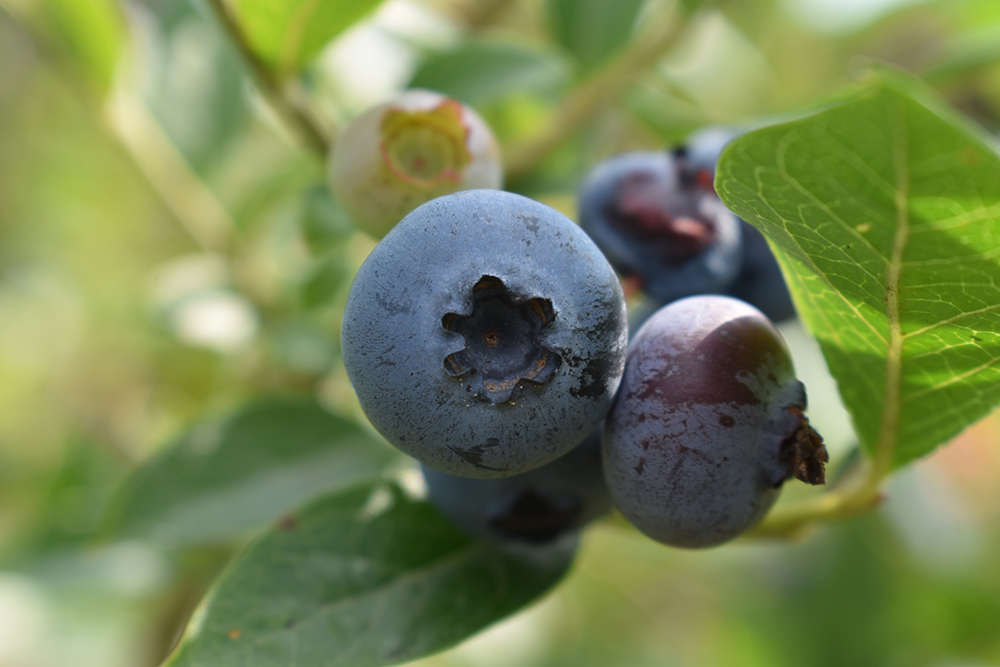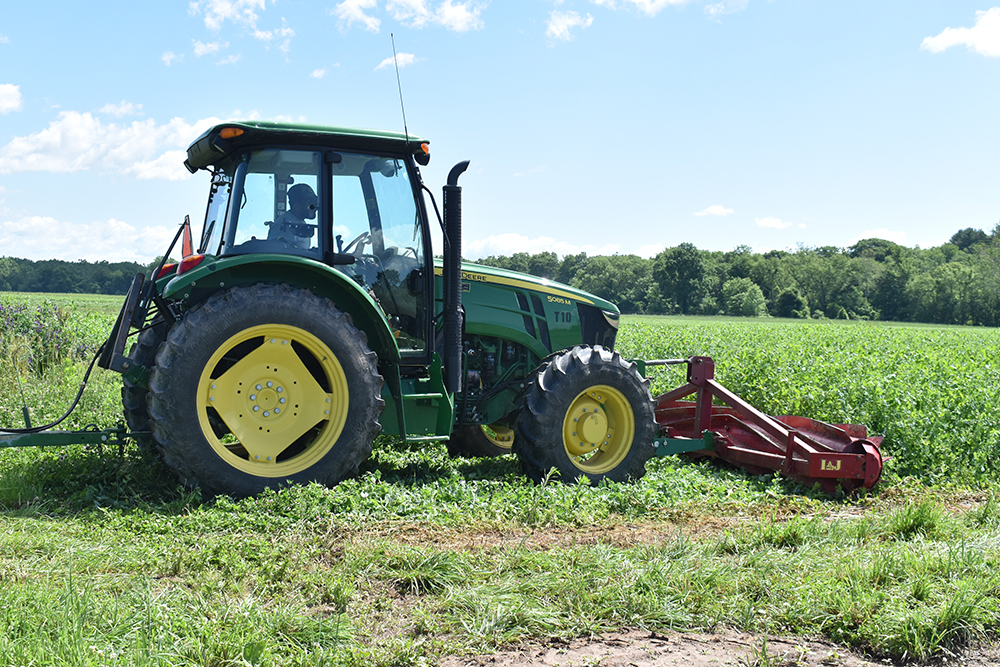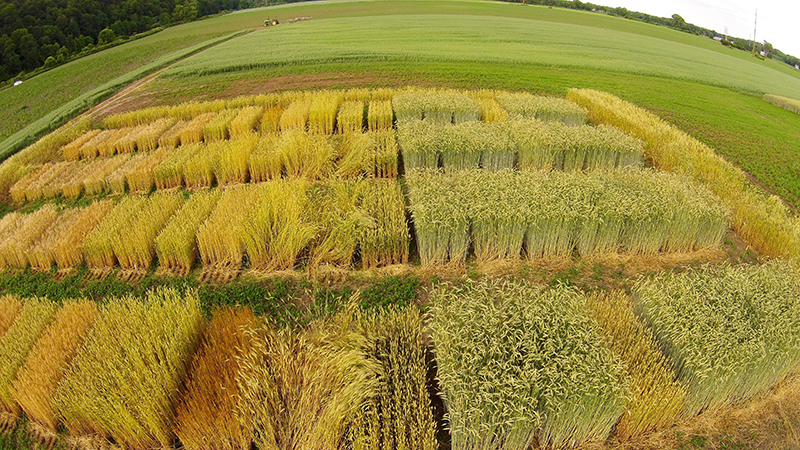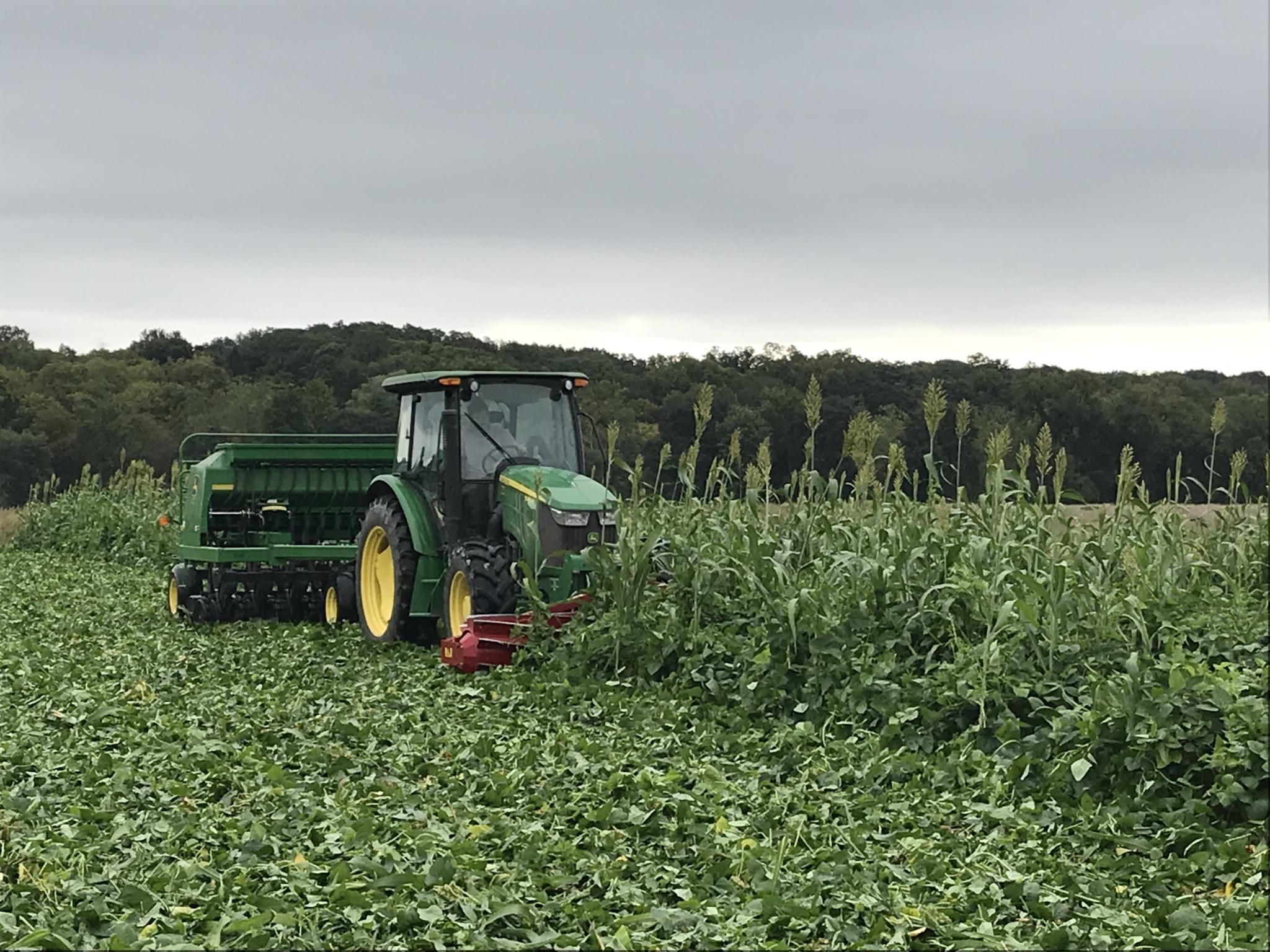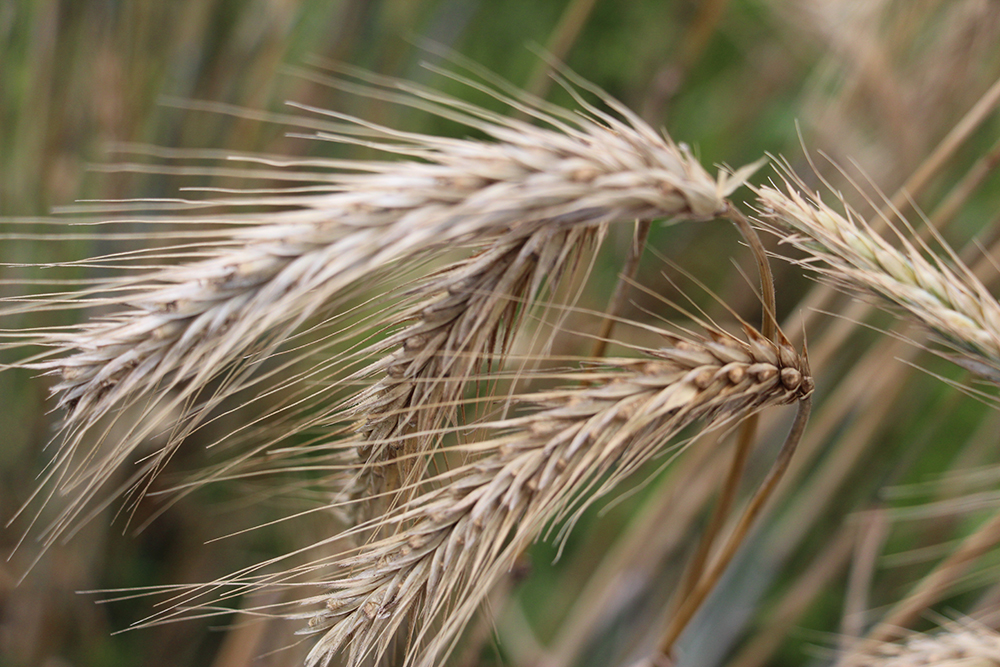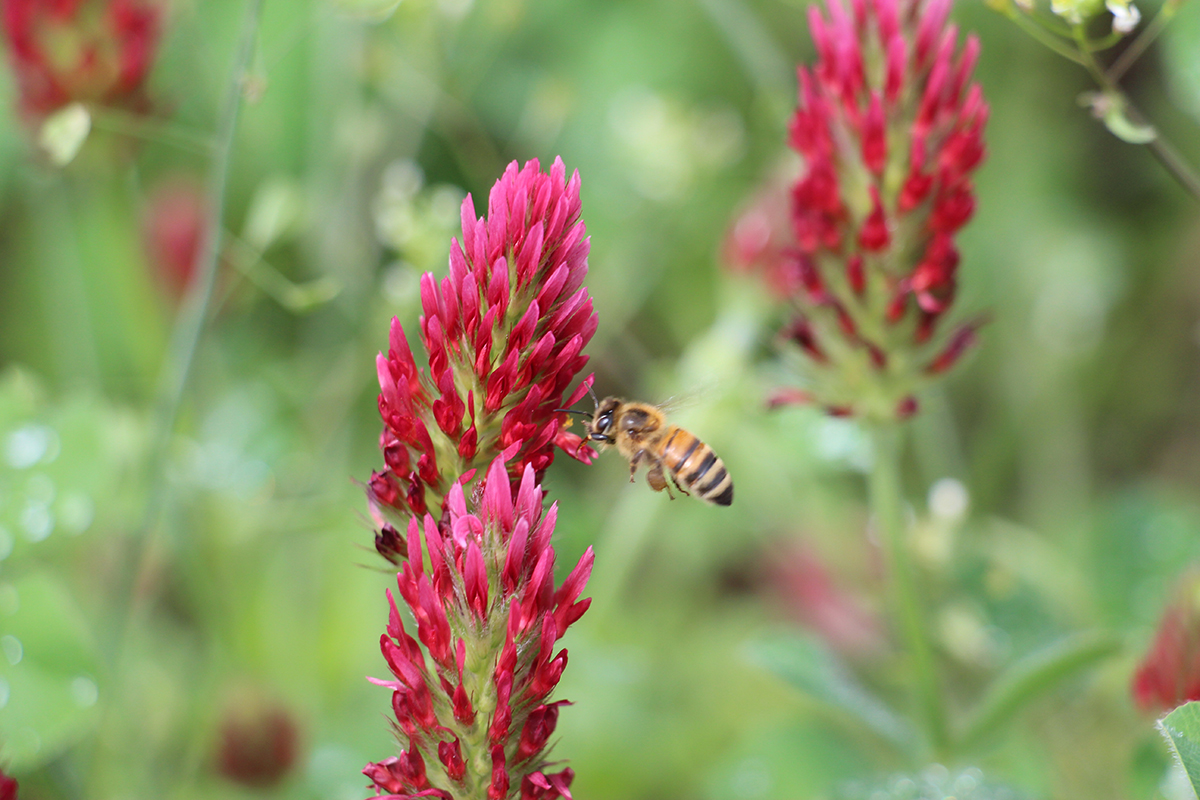All of the food scrap waste from our vegetable packing line is composted on site, and eventually returned back to the fields as an amendment rich in organic matter and beneficial microorganisms.
Blueberries
Rolling and Crimping
Rolling and crimping is a method of no-till production by which cash crops are planted into a flattened and killed cover crop. The flattened cover crop protects the soil, suppresses weeds, and eliminates the need for tillage in a cropping cycle. Over time, soil structure is improved, biology is stimulated, and the land is able to shield itself from extreme weather events such as floods or droughts.
No-till Pinto Beans
This field of pinto beans will be planted into rolled and crimped rye.
Small Grains Trials
The small grains trials launched in 2013 as a partnership with Cornell University and Cornell Cooperative Extension of Ulster County to gather data on a variety of grains, and share findings with area farmers interested in adding grains into their rotations and moving into the local grains market. Now into its seventh growing season, we have planted and examined over 100 varieties of spring and winter wheat, barley, rye and oats. To learn more about the small grains trials click here.
Taking tillage out of organic field crop production
In an effort to improve soil health and add resilience to growing systems, in collaboration with Cornell University, this 3-year trial is looking at producing field crops in no-till roll and crimp systems. Several different cover crop and cash crop combinations are trialed. In addition to yield, several other factors are measured including weed suppression, pest pressure, soil moisture, and crop growth. The trial will be completed in 2022.
Wheat Trials
Vegetable Rotation
Our vegetable production is part of a carefully choreographed three-year rotation that moves small grains, cover crops, and vegetables across 100 acres of the Farm’s most productive land. Each year, 30 acres of this land will host a small grain, 30 acres will host a cover crop, and 30 acres will produce mixed vegetables. Each year following, the crops will rotate to a new 30 acre field, and on the fourth year, the cycle will begin anew. In this way, pest and weed pressure is reduced and the soil is improved for each subsequent crop in the rotation.
Sweet Potato Slip Trial
Sweet potato “slips” are stem cuttings (similar to transplants) that are used to grow a sweet potato plant. The vast majority of sweet potatoes produced in the northeast are grown from slips produced in North Carolina. In 2021 we began hosting this research trial led by Cornell Cooperative Extension’s Eastern New York Commercial Horticulture Program. The trial asks the following questions: What effect do locally produced slips have on yield? Is it economically viable to produce slips in the Hudson Valley region, given the cooler weather (compared with North Carolina)?
Greenhouse Gas Exchange Trial
This research trial is a collaboration with researchers from Cornell Cooperative Extension. It tracks the amount of greenhouse gases released from a field of winter squash over the course of a season in both tilled and un-tilled ground and using several different fertility teatments. The goal is to collect data that will help growers find ways to promote carbon sequestration without unintentionally increasing the release of more potent greenhouse gases like methane and nitrous oxide.


